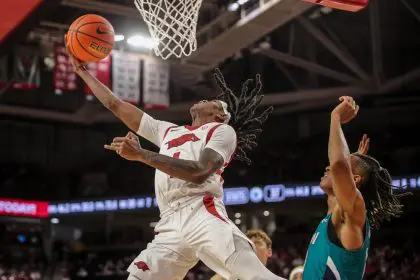Sometimes a friendly match reveals more uncomfortable truths than anyone wants to acknowledge, and Saturday’s 2-1 defeat to Turkey at Pratt & Whitney Stadium delivered exactly that kind of wake-up call for the United States men’s national team. What started as an encouraging early goal from Jack McGlynn quickly devolved into a concerning display that left more questions than answers as the 2026 World Cup approaches.
The loss itself isn’t catastrophic—friendly results rarely determine tournament success—but the manner of the defeat should have Mauricio Pochettino losing sleep. When your experimental lineup averaging just 23.8 years old struggles with basic fundamentals like winning duels, maintaining concentration, and showing the mental fortitude to respond to adversity, you’re looking at systemic issues that extend far beyond individual mistakes.
This wasn’t supposed to be a make-or-break moment for the USMNT, but it became one anyway when key players failed to seize opportunities to establish themselves in Pochettino’s long-term plans. With marquee stars like Christian Pulisic, Weston McKennie, and Antonee Robinson absent, this was the perfect stage for depth players to prove they belonged in World Cup conversations.
The striker search continues without resolution
Perhaps no position embodies the USMNT’s current uncertainty more than the No. 9 role, where Patrick Agyemang’s hometown homecoming in East Hartford failed to provide the breakthrough performance everyone hoped to see. The physical tools are clearly there—Agyemang matched Turkey’s defenders for strength and presence—but his first touch and finishing consistently let him down when opportunities arose.
The most telling moment came when Diego Luna delivered perfectly weighted passes into Agyemang’s feet, only to watch them bounce away due to poor control. These are the kinds of technical deficiencies that separate promising players from international-quality strikers, and they were exposed repeatedly against Turkey’s organized defense.
Haji Wright’s 25-minute cameo offered little clarity about the striker situation, deployed wide rather than centrally and rarely influencing play beyond one late dribble that ended predictably in dispossession. Brian White’s seven touches after coming on as a substitute hardly registered as meaningful evaluation time.
The concerning reality is that none of these options presented compelling cases for inclusion in Pochettino’s first-choice lineup, leaving the manager without obvious solutions at a position that could determine World Cup success or failure.
Cardoso’s international struggles continue
Johnny Cardoso’s club form with Real Betis has made him one of Europe’s most sought-after midfielders, with Atlético Madrid reportedly preparing a significant transfer offer. Unfortunately, that excellence hasn’t translated to international football, where his performances continue to range from disappointing to actively harmful.
Saturday’s decisive mistake perfectly encapsulated Cardoso’s international career: a moment of inexplicable carelessness that directly gifted Turkey their equalizing goal. With the USMNT leading 1-0 and in complete control, Cardoso attempted a casual pass out of his own penalty area that ricocheted off Arda Güler and into the net.
This wasn’t an isolated incident but part of a troubling pattern that includes similar lapses during last year’s Copa América preparation. For a player valued specifically for his composure and ball-playing ability, these mental errors represent fundamental failures to deliver his primary strengths when representing his country.
The silver lining came from Tyler Adams’ halftime introduction, which immediately stabilized the midfield and demonstrated the gulf in class between proven international performers and players still trying to establish themselves at this level.
Defensive cohesion remains elusive
The absence of first-choice fullbacks Antonee Robinson and Sergiño Dest created opportunities for Max Arfsten and Alex Freeman to stake claims for regular inclusion, but both struggled to handle the physical and tactical demands of international football against organized opposition.
Arfsten’s fourth international appearance showed little progression from his earlier caps, with poor crossing accuracy and consistent problems winning one-on-one duels against Turkey’s attackers. Freeman’s debut offered glimpses of potential but also revealed the kind of positional uncertainty that elite opponents ruthlessly exploit.
The breakdown in defensive structure created impossible situations for central defenders Chris Richards and Miles Robinson, who found themselves exposed repeatedly as Turkey’s quick transitions overwhelmed the American backline. This isn’t just about individual errors—it’s about systematic failures that suggest deeper issues with tactical preparation and execution.
The mental fragility that defines mediocrity
What proved most concerning about Saturday’s performance wasn’t the technical mistakes or tactical confusion, but the mental collapse that followed Turkey’s quick-fire goals in the 24th and 27th minutes. Professional teams at international level are expected to respond to adversity with increased determination and focus, not the passive acceptance that characterized the USMNT’s second-half performance.
Turkey won more duels, dominated aerial battles, and maintained higher tackle success rates not because of superior athleticism but because of greater commitment and intensity throughout the match. These are mentality issues that can’t be coached in a few training sessions—they represent fundamental character traits that separate elite competitors from also-rans.
The Americans created numerous half-chances through their superior possession statistics but lacked the conviction and precision to convert territorial advantage into genuine scoring opportunities. This mirrors the kind of performance that has defined American soccer for decades: technically competent but lacking the cutting edge required for tournament success.
Switzerland match becomes must-watch evaluation
Tuesday’s friendly against Switzerland in Nashville has transformed from routine preparation into a crucial evaluation opportunity for Pochettino and his experimental squad. The Swiss represent a more organized and defensively disciplined opponent than Turkey, meaning the tactical and mental deficiencies exposed on Saturday could be amplified further.
Players like Damion Downs, who didn’t feature against Turkey, now have potential opportunities to leapfrog teammates who failed to impress. Pochettino’s willingness to make bold changes could determine whether this experimental period yields genuine discoveries or confirms that the USMNT’s depth remains dangerously thin.
The coaching staff’s tactical adjustments will be equally important, particularly regarding defensive organization and midfield balance. The pairing of Luca de la Torre and Cardoso offered creativity but lacked the defensive steel required against quality opposition, suggesting Pochettino may need to prioritize stability over attacking ambition.
World Cup implications loom large
With the 2026 World Cup being held on home soil, the pressure on the USMNT to deliver meaningful results has never been higher. Saturday’s performance served as an uncomfortable reminder that talent alone won’t be sufficient if players can’t execute under pressure or maintain concentration throughout full matches.
The absence of established stars revealed depth chart problems that could prove critical if injuries or suspensions affect key players during the World Cup. Building a competitive 26-man roster requires having reliable options at every position, something the current player pool doesn’t provide.
The Gold Cup as last-chance evaluation
The upcoming Gold Cup has evolved from routine regional competition into the final opportunity for fringe players to establish World Cup credentials. Saturday’s disappointments mean several players have already exhausted their chances, while others who didn’t feature now have unexpected opportunities to impress.
Pochettino’s challenge is identifying which players can handle international football’s unique pressures while maintaining the tactical discipline required for tournament success. The margin for error continues shrinking as 2026 approaches, making every remaining evaluation opportunity crucial for World Cup preparation.
















